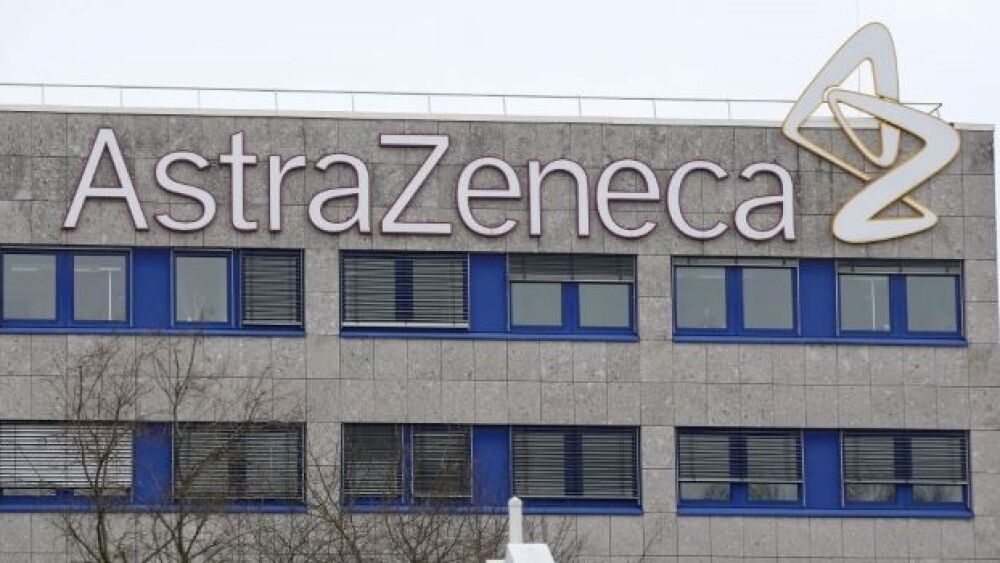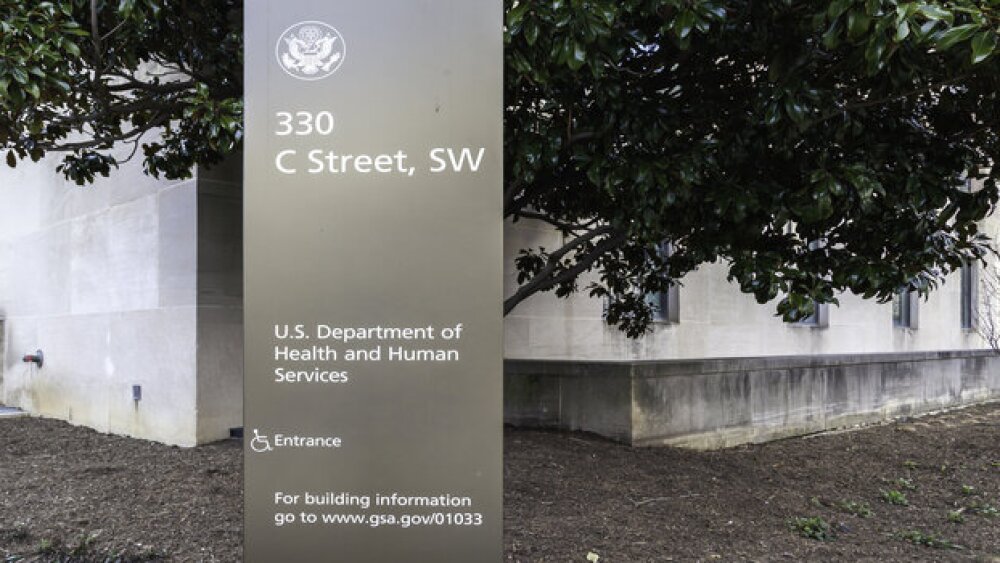The announcement by the NIAID, a part of the National Institutes of Health (NIH), is very unusual.
Bodo Marks/picture alliance via Getty Images
Yesterday, AstraZeneca reported that the U.S. Phase III trial of the vaccine, AZD1222, demonstrated an efficacy of 79% at preventing symptomatic COVID-19 and 100% efficacy at preventing severe disease and hospitalization.
The announcement was on interim analysis based on 32,449 participants in the trial reporting 141 symptomatic cases of COVID-19. Efficacy was consistent across all ethnicities and ages, and in participants 65 years of age and older, efficacy was 80%.
Then, late Monday, the National Institutes of Health issued a statement concerning the Data and Safety Monitoring Board (DSMB) that is supervising the clinical trial, which had informed the National Institute of Allergy and Infectious Diseases (NIAID), the Biomedical Advanced Research and Development Authority (BARDA) and AstraZeneca “that it was concerned by information released by AstraZeneca on initial data from its COVID-19 vaccine clinical trial. The DSMB expressed concern that AstraZeneca may have included outdated information from that trial, which may have provided an incomplete view of the efficacy data.”
Now, AstraZeneca issued a statement, saying, “The numbers published yesterday were based on a pre-specified interim analysis with a data cut-off of 17 February. We have reviewed the preliminary assessment of the primary analysis and the results were consistent with the interim analysis. We are now completing the validation of the statistical analysis. We will immediately engage with the independent data safety monitoring board (DSMB) to share our primary analysis with the most up-to-date efficacy data. We intend to issue results of the primary analysis within 48 hours.”
Mene Pangalos, executive vice president of AstraZeneca, has also confirmed that “there are more cases that have happened since the interim” analysis, with the result that “the number will be higher.” He added that the randomization of the trial was 2:1, vaccine to placebo, “so it’s highly significant and again we continue to have zero cases on the vaccine arm as we look at the cases.”
The announcement by the NIAID, a part of the National Institutes of Health (NIH), is very unusual.
Stephen Evans, a professor at the London School of Hygiene and Tropical Medicine, in a forum for science reporters in Britain, noted that although disagreements over trial results happen, it rarely, if ever, happens like this.
“It is usually done in private, so this is unprecedented in my opinion,” Evans said.
The AstraZeneca-Oxford vaccine has had a troubled history, although maybe it only seems that way because the development of the vaccines for COVID-19 has been under so much public and media scrutiny, compared to typical vaccine or drug development.
In April 2020, as vaccine efforts were just beginning, AstraZeneca and the University of Oxford were leading the way. The Oxford group had been conducting vaccine studies on SARS-CoV-1, the coronavirus that causes SARS, in 2019 and made a quick pivot to working on SARS-CoV-2, the coronavirus that causes COVID-19.
The vaccine leverages a viral vector using a weakened version of a common cold (adenovirus) virus that contains the genetic materials of SARS-CoV-2 spike protein. The particular recombinant adenovirus vector (ChAdOx1) was selected to create a strong immune response from a single dose. It does not replicate, so it doesn’t cause an infection in the person receiving the vaccine.
In September 2020, the vaccine group paused their Phase III vaccine trial after a report that one of the patients receiving the vaccine developed symptoms similar to a serious spinal inflammatory disorder called transverse myelitis. The patient was a woman in the UK, who recovered within about a week. The trial was paused globally, then began in every location except the U.S., where it was delayed for several weeks while the U.S. Food and Drug Administration (FDA) evaluated the available data.
In a related story, a study published recently in The New England Journal of Medicine reported that the AstraZeneca-Oxford vaccine was not effective against the South African COVID-19 variant. The study evaluated 1,467 patients in South Africa, and found that among the people receiving the vaccine, 19, or 2.5%, developed mild-to-moderate COVID-19 at least 14 days after receiving the second dose compared to 23 (3.2%) of people who received a placebo. Of the 42 patients who became infected, 39 were from the B.1.351 South African variant, which the study projected as 10.9% effectiveness against the variant.
Then, most recently, more than a dozen countries suspended deployment of the AstraZeneca-Oxford University vaccine after incidences of blood clots were reported. Per data received as of March 8, 17 million people in the European Union and United Kingdom have received the vaccine and there have been 15 cases of deep vein thrombosis and 22 cases of pulmonary embolism. Incidences were first reported in Denmark and Norway, who halted distribution, followed by Germany and France and other countries. Germany’s Health Minister Jens Spahn admitted it was a “very low risk” but would be above average if it was actually linked to the vaccine.
On March 14, AstraZeneca issued a statement, noting “A careful review of all available safety data of more than 17 million people vaccinated in the European Union (EU) and UK with COVID-19 Vaccine AstraZeneca has shown no evidence of an increased risk of pulmonary embolism, deep vein thrombosis (DVT) or thrombocytopenia, in any defined age group, gender, batch or in any particular country.” In fact, the company pointed out, “This is much lower than would be expected to occur naturally in a general population of this size and is similar across other licensed COVID-19 vaccines.”
Anthony Fauci, director of NIAID and supervisor of the DSMB, although not a participant, said on ABC’s Good Morning America today, “This is really what you call an unforced error. Because the fact is, this is very likely a very good vaccine. And this kind of thing does, as you say, do nothing but really cast some doubt about the vaccines and maybe contribute to the hesitancy.”
AstraZeneca and the University of Oxford have yet to submit data to the FDA for a possible Emergency Use Authorization (EUA), although they are expected to by early April. The question over the data is related to the information AstraZeneca included in its press release, not data that was sent to the agency or submitted to a peer-reviewed technical journal.





